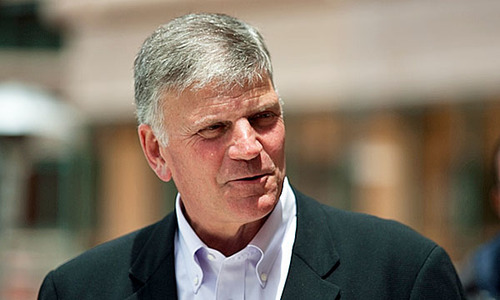Franklin Graham, the famous evangelist and son of the late Billy Graham, is as well-known for his political activism as he is for his Christian ministry. In the course of that activism, Graham made a Facebook post about North Carolina’s infamous “bathroom bill,” which required people using public bathrooms to use that bathroom which corresponded to their God-assigned birth gender. Graham made that post in 2016. This week, some two years later, the post was removed by Facebook and Graham was banned from the site for 24 hours. According to an article published in The Charlotte Observer:
A member of Facebook’s content review team — the team has 15,000 members — had mistakenly decided the post violated Facebook’s policy that bans “dehumanizing language” and excluding people based on sexual orientation, race and other factors, according to the spokesperson and Facebook’s written policy.
Graham, who has over 7 million followers on Facebook, expressed his frustration on Friday:

After receiving negative publicity from a very popular man, Facebook quickly apologized and restored the post. Nevertheless, proponents of transparency and free speech, Christian and non-Christian alike, should be alarmed by the censorship activities of the world’s most powerful social media outlet. At the time of publication, the owner of this very website remains banned from Facebook for daring to refer to Bruce Jenner, as a man named Bruce Jenner instead of a woman named Caitlyn.
Call me frustrated.
*Please note that the preceding is my personal opinion. It is not necessarily the opinion of any entity by which I am employed, any church at which I am a member, any church which I attend, or the educational institution at which I am enrolled. Any copyrighted material displayed or referenced is done under the doctrine of fair use.











